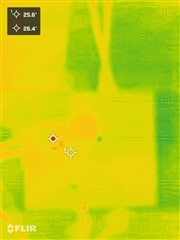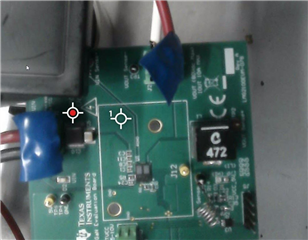Other Parts Discussed in Thread: LMG5200, , LMG2100EVM-078
Hello,
I have been using the LMG5200 for a few years and decided to move to the LMG2100 as it is newer.
I see that with the LMG2100 the idle current draw for the board is 0.12A at 56V.
With the LMG5200 devices, the idle current was 0.08A at 56V.
The power consumption is 2.25W higher with the LMG2100 device.
I would have thought power consumption would be lower as the LMG2100 should be more efficient. Am I looking at this wrong?
Thanks;
Leo



